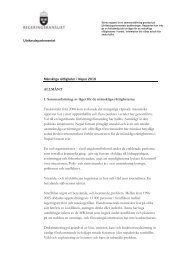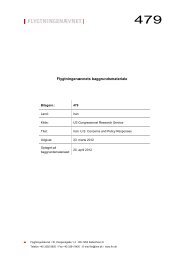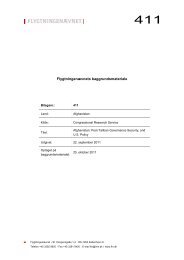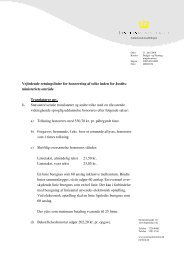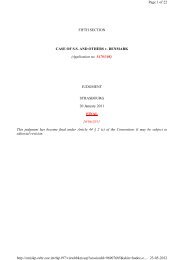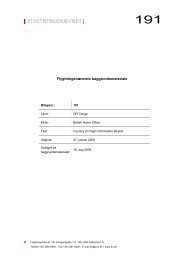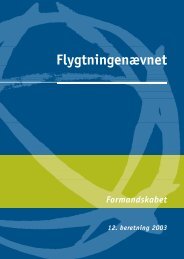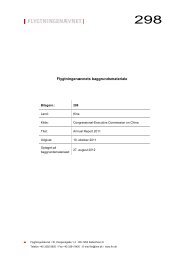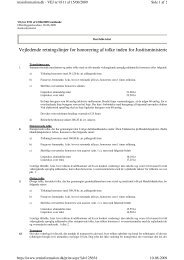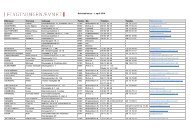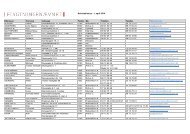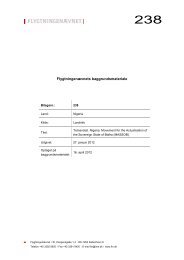Annual Report - National Human Rights Commission
Annual Report - National Human Rights Commission
Annual Report - National Human Rights Commission
You also want an ePaper? Increase the reach of your titles
YUMPU automatically turns print PDFs into web optimized ePapers that Google loves.
Annexure 12<br />
○ ○ ○ ○ ○ ○ ○ ○ ○ ○ ○ ○ ○ ○ ○ ○ ○ ○ ○ ○ ○ ○ ○ ○ ○ ○ ○ ○ ○ ○ ○ ○ ○ ○ ○ ○ ○ ○ ○ ○ ○ ○ ○ ○ ○ ○ ○ ○ ○ ○ ○ ○ ○ ○ ○ ○ ○ ○ ○ ○ ○<br />
○<br />
Shortage of Police Personnel<br />
The study has shown the inadequacy of human resources, especially women police, as well as<br />
infrastructural resources with the police agencies in almost all the states, which are impediments<br />
in undertaking rehabilitative initiatives. It would be advisable to have adequate number of women<br />
police officials in all police stations. Since the police station is the first rung of the government<br />
machinery that is called upon to ensure human rights of the survivors, it is essential that the<br />
police stations should be adequately equipped to deal with the situation. Augmenting the human<br />
resource and material resource of the police stations will be in the best interest of preventing<br />
trafficking and other crimes.<br />
Anonymity of the Rescued Person<br />
All efforts should be made to ensure that anonymity is maintained with respect to the identity of<br />
the trafficked person. This is an important aspect of protection of human rights. The provisions<br />
of 228A IPC and 22 JJ Act have to be complied with and any violator should be made accountable.<br />
Prosecution of Exploiters and Others<br />
Registration of Cases<br />
Police officials themselves have reported about under-reporting or non-reporting of crimes related<br />
to trafficking. This is a serious lapse in the existing system of law enforcement. Unless all crimes<br />
of trafficking are reported to the police, legal action cannot be initiated against traffickers and<br />
exploiters. This is possible only with greater police-public cooperation, involvement of civil<br />
society, increased public awareness and, above all, sensitivity and accountability among the<br />
officials concerned.<br />
Misuse of Section 8 ITPA<br />
The research has brought out several distortions in law enforcement. On the one hand, there is<br />
non-utilization of sections of ITPA against traffickers and exploiters, and on the other hand,<br />
there is grave misuse of Section 8 ITPA, wherein victims are arrested, prosecuted and even<br />
convicted on the charge of soliciting. The legal concept of mens rea has to be investigated and<br />
the person should not be chargesheeted or convicted if mens rea is lacking. A person who is<br />
made to solicit under coercion, duress, threat, etc., cannot be charged with the offence of soliciting,<br />
as there is no mens rea. A victim of trafficking should not be arrested at all. This calls for<br />
sensitivity and accountability of all concerned. Even if the person is wrongly charged, she should<br />
not be convicted. If the investigation is perfunctory, the court can call for further investigation.<br />
Similar aspects of protecting the human rights of the victims have to be brought home by<br />
appropriately training and sensitizing police officers, prosecutors and judicial officers.<br />
Justice Delivery<br />
Several distortions in justice delivery have been brought out by this study. Most of the persons<br />
convicted are victims who are charged with the offence of soliciting. Instances are many where<br />
<strong>National</strong> <strong>Human</strong> <strong>Rights</strong> <strong>Commission</strong> <strong>Annual</strong> <strong>Report</strong> - 2004-2005<br />
283<br />
AR-Chapter-1-19-10-6-06.p65<br />
303<br />
7/17/06, 6:31 PM



